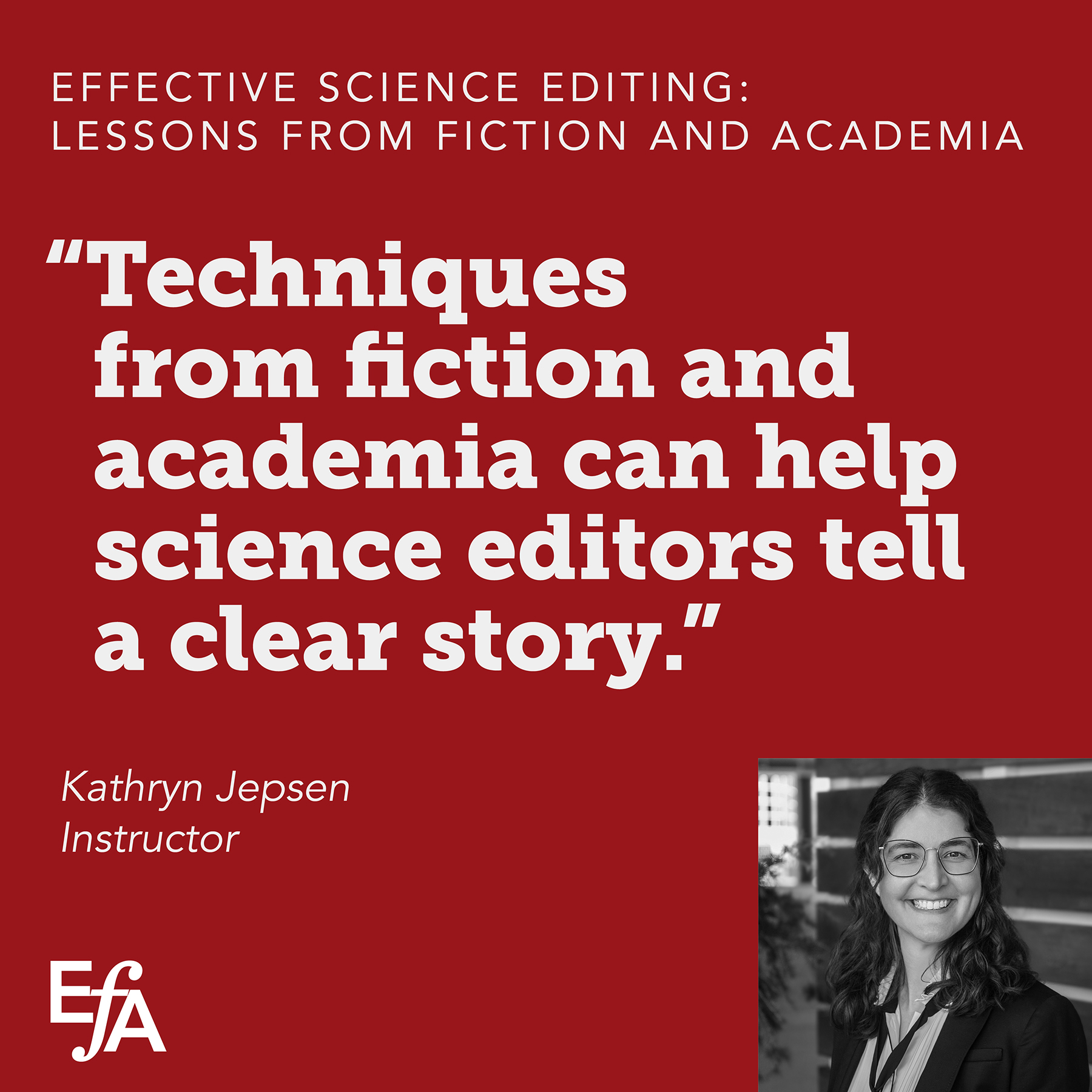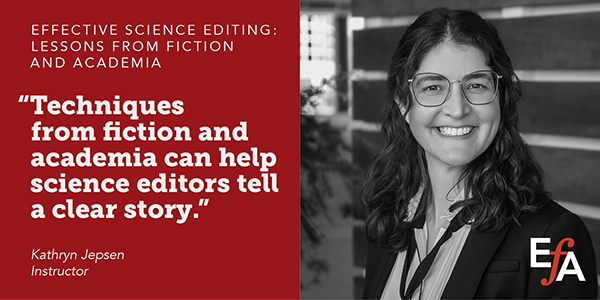Description
After placing your order, your recorded webinar will be added to your personal course library on our education site. That site has different login information from the main EFA site. Please check your email for information on how to access the webinar.
Webinar recordings may not be downloaded, and access ends five years after the recording date. Please check the webinar air date at the bottom of this listing to know how long you will have access to the recording.
Science writing communicates specialist information to a non-specialist audience. It educates the public about the importance of scientific results, convinces funding agencies to support proposed projects, and enlightens visitors about the meaning of museum exhibits.
But to do any of those things, science writing can’t be dry and boring. Lessons from fiction editing and academic editing can help you keep the reader engaged, reaching both your audience and your goals.
In this 90-minute webinar, you’ll learn how to ensure a piece of science writing hooks a reader’s attention in the beginning, holds the reader’s attention while conveying important information in the middle, and rewards the reader’s attention by delivering on promises in the end. We’ll also talk about best practices for ordering information at the sentence, paragraph, and overall structural level.
This talk is designed for science editors and writers, though it may be helpful to anyone who translates professional jargon into clear, accessible language. It will be especially helpful to those who work on shorter-form science writing, such as articles, but almost every principle will apply to book-length science writing as well.
For the past 10 years, Kathryn Jepsen (she/her) has served as editor in chief of Symmetry, an online magazine about particle physics and astrophysics published by two US national laboratories. She has a master’s degree in journalism, with a focus on science writing, from Northwestern University, and she has studied creative writing and the developmental editing of fiction.
This webinar originally aired on August 22, 2024.



